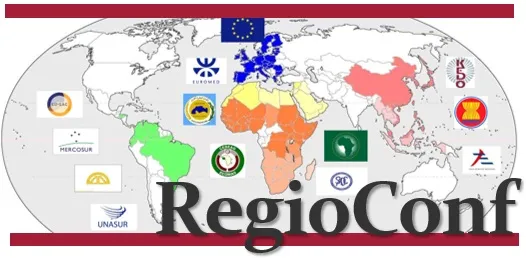The EU, Regional Conflicts and the Promotion of Regional Cooperation: A Successful Strategy for a Global Challenge?
This research aims to answer the question: "to what extent and under what conditions does the promotion of regional integration contribute to the positive transformation of regional conflicts?". The objective is to define "regional conflicts"; examine the dynamics of these conflicts in specific geographic areas (the Mediterranean, Africa, Central and South America, East Asia), assess whether and how the European Union, in cooperation (or in competition) with other global players, has tried to solve the conflicts through regional cooperation and integration and probe whether the promotion of regional cooperation and integration can contribute to building a lasting peace. The political goal of RegioConf, then, is to study how the EU (along with other global actors) can improve its strategies to address regional conflicts through regional cooperation and integration. The project will also assess the specific role that the Member States of the European Union that have historical ties in some areas of conflict can play. The project, which will last two years, is being conducted in close collaboration with the University of Tübingen and research centers in Japan, Algeria, Brazil and South Africa. The launch conference was held in Tübingen on 8 and 9 February 2013. The project was also presented in a panel on "Model Europe? The European Union, Conflict Transformation and the Diffusion of Regionalism" at the International Studies Association (ISA) Convention in San Francisco, 3-6 April 2013.


